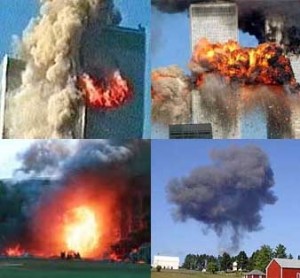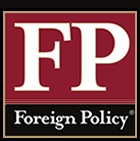Edit to revisit Kissinger's role and add book links.
Revisitation: We've always known Kissinger is brilliant, and there is no reason to revise that view. However, in light of what is now known about Viet-Nam, we must find Kissinger guilty as a war criminal (first link below).
The book begins with a lamentation that foreign policy has been neglected in the last three Presidential campaigns; that the American public is terribly apathetic about foreign affairs; and that Congress is overly interventionist–he refrains from adding the obvious caveat regarding most Members lack of knowledge of the world. In brief, we have a long way to go as a Nation before we can devise and sustain a credible foreign policy.
The core point in this entire work is that both economics and technologies, including Internet and communications technologies, have so out-paced politics that the world is at risk. Globalization, terrorism, and other threats cannot be addressed with our existing international, regional, and national political constructs, and new means must be found–new political solutions must be found–if we are to foster security and prosperity in the age of complexity, discontinuity, and fragmentation.
There are some useful sub-themes:
1) Each region must be understood in its full complexity, with special attention to both emerging powers and to the subtleties of relations between regional actors–we should not confine ourselves to simply addressing each actor's relationship to the United States.
2) We must take great care to never interpose ourself or allow ourselves to become a substitute for a regional power, e.g. in the dialog between North and South Korea, or India and Pakistan.
3) We must strive at all times to ensure that the historic context is clearly appreciated and underlying every policy formulation, at the same time that we must recognize and define the vast cultural differences between US approaches to foreign policy, and the approaches of others, such as China.
4) Military compromise, whether in the Gulf War, Bosnia, or Kosovo, leaves a strategic vacuum that will inevitably require attention.
5) Africa is the true test for whether a world community can be devised and new solutions found for addressing the severe conditions in Africa that ultimately threaten the well-being of the rest of the world.
6) Our foreign service officers and the political leaders they serve must have history and philosophy restored to their diets, or they will fail to devise long-range concepts, global strategies, and sustainable policies.
Dr. Kissinger ends with what some might overlook and what I found to be absolutely core: no economic system can be sustained without a political basis. However much major multinational corporations may care to buy their comforts and their arrangements of convenience, at root, they prosper only because some set of political arrangements among great nations is providing a safety net, including the financial system with one major node in New York.
The books ends with an appeal for American humility and discretion as it makes it way forward–we must act as if we are one of many co-equal nation-states, while recognizing that our pre-eminence demands more of us than might be expected from others.
There is one major gap in this book, and I suspect it was deliberate: there is no discussion at all of the means by which American foreign policy is to be devised. As America moves into the early months of the “war on terrorism”, it would have been helpful to have a really well-qualified rant on how it is impossible for this great Nation to have a foreign policy when we have gutted almost into extinction what passes for a Department of State today. Our Foreign Service, our Embassies, our foreign assistance programs, our Peace Corps, our external research, our sponsorship of international conferences on topics of vital importance to the US, have all faded into decrepitude. If ever there was a time when Kissinger, Brzezinski, and Powell should come together and champion a major restoration–at least a $10 billion a year increase–in Program 150 (our soft power), this is that time. That they have all failed to do so troubles me–that Senator Biden was castigated publicly for speaking the plain truth about how the world perceives us–troubles me. The attacks of 11 September represent, primarily, a failure of our ability to monitor and understand the world. That failure must lie heavily–and equally–on the shoulders of the foreign service (State), the clandestine service (CIA), and the counterintelligence service (FBI).
See also:
The Trial of Henry Kissinger
The Fifty-Year Wound: How America's Cold War Victory Has Shaped Our World
Failed States: The Abuse of Power and the Assault on Democracy
The Sorrows of Empire: Militarism, Secrecy, and the End of the Republic (The American Empire Project)
Breaking the Real Axis of Evil: How to Oust the World's Last Dictators by 2025
Web of Deceit: The History of Western Complicity in Iraq, from Churchill to Kennedy to George W. Bush
Legacy of Ashes: The History of the CIA
None So Blind: A Personal Account of the Intelligence Failure in Vietnam






